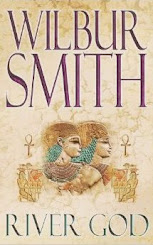When the mostly good reviews trickled in, I held fast because this was the sort of film I dreaded. I've never been a cinema buff, and watching an upsetting film isn't how I would want to spend an afternoon.
In the end, my curiosity won out. I went to a cinema, plonked myself in front of a big screen on a public holiday, and learnt that my suspicions (and the rave reviews) about the film were right.
My interest about the locally-produced, mostly Tamil film Jagat was also stoked by how much it reminded me of other works that revolved around a similar premise: the plight of marginalised Malaysian Indians who were left to their own devices after being kicked out of the estates where they have lived and worked for generations.
Jagat (Tamil slang for "bad") zooms in on a particular family, and how circumstances can keep them trapped in a vicious cycle of poverty and crime. In spite of his creative talents and out-of-the-box thinking, young Shankar a.k.a. Appoy is seen as a disappointment by his father Maniam. Appoy's uncle, Dorai, joins a gang with a friend. Both are promised the keys to getting ahead: for Appoy, good grades in the exams; and for Dorai, a thug's life.
Ironically, for Appoy, the education system and family unit which is supposed to be his lifeline wears him down instead. He's given a bad grade for his short composition (Saya Sebatang Pensel — remember that one?), which his dad berates him for. Pencils do not fly in the real world, he is told.
Watching Appoy being broken down is painful. Like the powers that be hell-bent on putting him in his place, this bully of a film knows where it hurts and how to hurt you. Every few minutes, something shocking, angering or saddening sneaks up and punches you in the gut.
When Appoy poses in a workmanlike Michael Jackson get-up he made from bits and pieces scavenged from his neighbourhood for his class's fancy dress competition, we can't help but cheer. Who's bad? He is! Then his dad has a bad day at work and Appoy's efforts are wasted.
Sad thing is, though he's aware of the significance of education, Maniam would rather beat or scold this piece of wisdom into his son instead of explaining it to him (we're not sure if he's done the latter before) — which doesn't work.
Salting Appoy's wounds further is the bullying he receives from schoolmates and a teacher who is, despite what the community believes, far from divine. With his dreams and self-worth in tatters, the boy figures he has to be bad for real — like his gangster uncle (who does not approve) — to get any form of respect and validation.
The film is not short of bad guys, but it's easy to guess who the true villains are: the archaic and rigid education system, which has trouble with outliers like Appoy; the conservative attitudes in his community; racism ... the usual suspects. After all, haven't we lived with them for years?
Jagat reportedly took a decade to make, presumably due to the perfectionist streak in the writer and production crew — and all that work shows. It paints a realistic, albeit gloomy portrait of Indians in poverty — and the forces that conspire to keep them there. An amazing directorial debut by Shanjhey Kumar Perumal, who also wrote the screenplay.
Speaking to local daily The Sun, Shanjhey revealed that his background is similar to the young protagonist's. "When I was young, I wanted to be a scientist," he said. "When I became a teenager, I wanted to be a gangster instead, because I found that society seemed to have more respect for such people compared to educated people." Thank goodness he ditched that ambition.
He also hoped the film will help non-Indian Malaysians understand their Indian neighbours better. "I really believe our racial unity should be more than just eating each other's food. We should also try to understand each other's history and culture. One of the simplest ways to do that is through the arts."
Is it "simple", though? I can imagine how tough it must be to solicit funding, especially for gritty non-escapist features based on real-world problems with no apparent solution or end in sight.
And, sometimes, the message is lost on some. As I stumbled towards the exit with other moviegoers, I heard two of them loudly discussing (parts of) the experience, like Taylor Swift's appearance in one of the ads, and how one of the gangsters looked like a friend. One of them seemed have a problem with the fact that a "Datuk" (Datuk Seri A. Anandan) was the producer — not "indie" enough, perhaps?
I'd like to think that, by making Jagat, Shanjhey is encouraging the poorer kids from his former hood to aim for greater things, like becoming the scientist he never became, or a Nobel Prize-winning man of letters.
Someone who, I hope, can find a way to make pencils fly.
Jagat began screening at selected cinemas nationwide on December 17, 2015.
Also, tweaked this part for clarity.
Categories:
The Malay Mail Online






